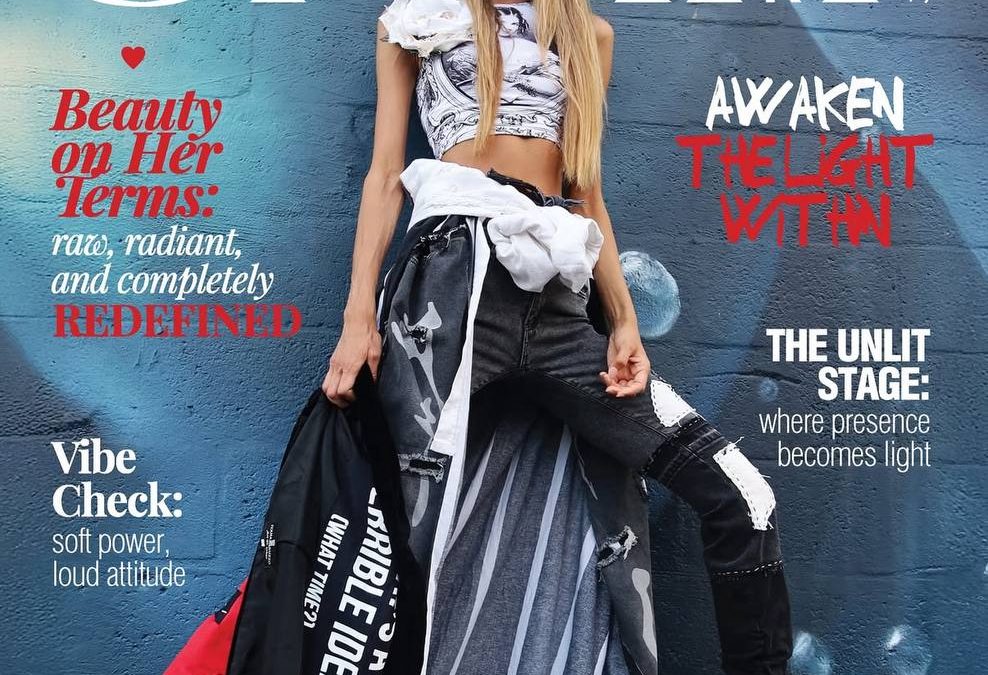
Close



In the short film Ramshackle, Romanian actress and model Ioana Mihalache steps into her most emotionally demanding role to date, portraying a woman on the margins—fragile, resilient, and fully human. While she plays a supporting role, the emotional charge she brings is undeniable. The film’s lead is played by Alina Staicu, whose layered and transformative performance anchors the entire project with strength and empathy.
Ramshackle is a raw meditation on addiction, self-discovery, and the will to start again. At the core of this story is Alexa, a woman determined to rewrite her life after being derailed by substance abuse. The narrative unfolds in moments of silence, rupture, and fragile hope—brought to life by a team committed to emotional honesty.
What drew you personally to the story of Ramshackle, and why did you feel it was important to be part of a film that deals with addiction and recovery?
What drew me personally to the story of Ramshackle was its raw honesty and the emotional complexity of the characters. Addiction is something that touches so many lives—often in silence or shame—and this film doesn’t shy away from showing both the darkness and the hope. I felt it was important to be part of this story because it gives a voice to people who are often overlooked or judged. It’s about more than addiction—it’s about the courage to face your pain, the fight to reclaim your life, and the beauty of second chances. As an actor, being able to step into that kind of truth is not only creatively fulfilling—it’s also a way to contribute to a larger conversation about healing and humanity.
As this marks your breakthrough role as an actress, what did you find most meaningful or transformative about being part of Ramshackle?
Being part of Ramshackle as my breakthrough role was deeply meaningful because it forced me to strip away every layer and connect with the rawest parts of the human experience. This film transformed me—not just as an actress, but as a person. I had to fully immerse myself in the pain, the chaos, and ultimately the hope that comes with recovery. It taught me empathy on a whole new level. I realized how powerful storytelling can be when it reflects real struggle and resilience. Ramshackle gave me the space to grow, to take risks, and to tell a story that matters.
What was the most challenging part of stepping into this role, and is there a particular moment on set that left a lasting impression on you?
The most challenging part of stepping into this role was letting go of control and allowing myself to be completely vulnerable. My character goes through so much emotionally—pain, denial, rage, and eventually a fragile kind of hope. To portray that truthfully, I had to dig into places within myself I had never accessed before. One moment on set that really stayed with me was a scene where my character breaks down after a relapse. It wasn’t just acting—it felt real. The silence in the room after we wrapped that scene was so heavy, no one spoke for a few moments. That’s when I realized the emotional weight this story carries, and how powerful it can be when it’s told honestly.
This film shines a light on the realities of drug addiction. What kind of conversations or reflections do you hope it sparks among audiences?
I hope Ramshackle sparks honest, compassionate conversations about addiction—conversations that move past judgment and into understanding. So many people struggle silently or love someone who does, and there’s still so much stigma around it.
This film shows the human side of addiction—the pain, the shame, but also the fight and the possibility of healing. I want audiences to walk away with a deeper sense of empathy, and maybe even the courage to reach out, speak up, or ask for help. If it can make just one person feel seen or less alone, then it’s done something powerful.
Why do you believe short films like Ramshackle have such strong potential to inspire awareness and social change today?
Short films like Ramshackle have a unique power because they deliver raw, impactful stories in a concentrated form. In today’s fast-paced world, people may not always sit through a full-length feature, but a short film can grab their attention, stir emotions, and spark reflection in just minutes. Ramshackle doesn’t waste time—it gets right to the heart of addiction and recovery. And because it’s shorter, it’s more likely to be shared, talked about, and felt. I believe short films are one of the most powerful tools we have right now to raise awareness and ignite social change, especially on topics that are often misunderstood or ignored.
Alina Staicu: Leading with Purpose and Presence
The lead role in Ramshackle is portrayed by Alina Staicu, an actress and model driven by passion, purpose, and heart. With early roots in the creative arts and a background in counseling and psychology, Alina brings a unique emotional intelligence to her craft. From a young age, she found herself drawn to all forms of expression, using art as both a language and a lifeline.
“It’s through acting that I feel most alive,” she shares. “Art is my true passion. It’s where I lose myself and find myself all at once.”
Alina’s portrayal in Ramshackle dives deep into a soul’s internal struggle—battling addiction and rediscovering identity. For her, the role was both a personal journey and a tribute to the resilience of those whose stories often go unheard. “Every person involved in this project came with love, depth, and courage,” she adds. “That’s what makes it so powerful.”
Fashion Note
All wardrobe styling and visual direction for this editorial were provided by Ivana Ruzzo, whose avant-garde, handcrafted pieces helped shape the emotional and aesthetic tone of this project. Her work is available at www.ivanaruzzo.com.
